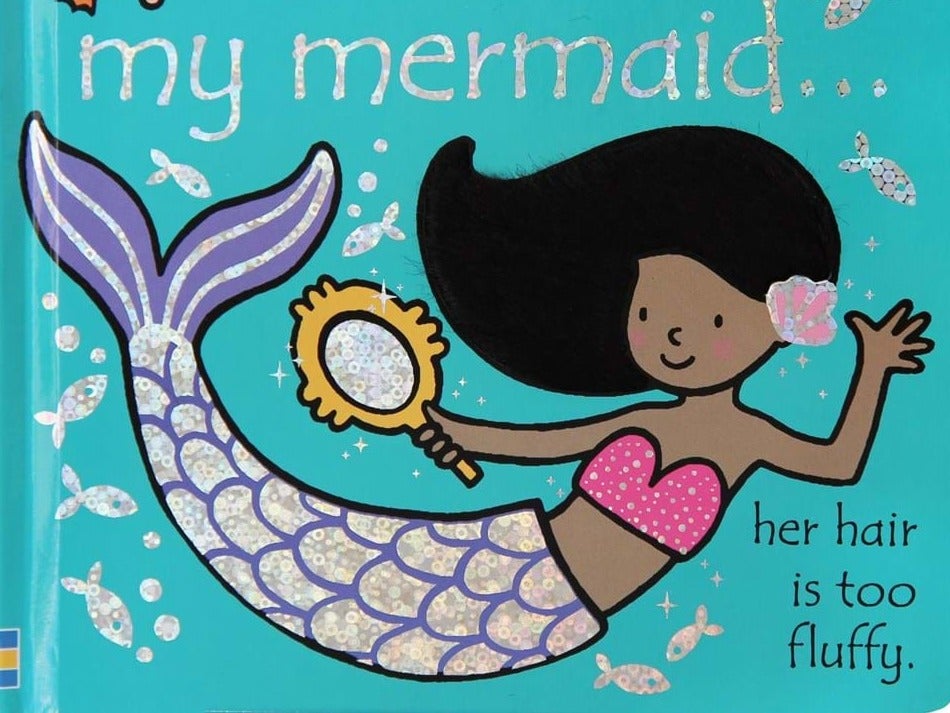Tesco apologises for ‘racist’ T-shirt featuring a black mermaid with hair described as ‘too fluffy’
‘We will not be purchasing any more orders of this product,’ supermarket spokesperson says

Tesco has issued an apology after a shopper called out a “racist” T-shirt, which features a black mermaid with hair described as “too fluffy”, being sold at the supermarket.
On Friday 7 August, Katie Wells, from Dover, was shopping at a Tesco branch in Whitfield when she spotted the T-shirt in question at a distance.
The mother-of-two told Kent Live that when she first saw the shirt, she felt “excited” because “diversity in clothing is particularly rare”.
However, as soon as she read the caption on the garment, she felt “really shocked”.
“We were walking down the main middle aisle and we saw the set from a distance,” she said. “I got excited because diversity in clothing is particularly rare.
“I read the text on the shirt and was really shocked. It’s not something any child should read on a T-shirt, and it perpetuates a stereotype – it’s racism.”
The design on the T-shirt, which is not from Tesco’s F&F clothing range, comes from a book in the That’s Not My... book series by Fiona Watt and published by children’s book publisher Usborne.
The books, and other items related to the books, are known for having a “touchy-feely” element, where consumers can feel different textures on the products.
In June, Avery Francis, founder and CEO of workplace design consultancy Bloom, shared a post on Instagram outlining the microaggressions that black women frequently face, including people asking to touch their hair.
“We are not pets and this is not a petting zoo,” she wrote. “We are often ridiculed for our textured hair and have been made to feel that we don’t fit societal beauty standards.”

Wells said that Tesco “needs to do better”, stating: “They clearly need to diversify their purchasing team and be aware of this.”
“It is not a new issue, especially with all that has been in the media recently, ignorance is not an excuse anymore,” she said. “It makes me feel so sad and angry that this is how black children are growing up.
“All children deserve to see themselves in children’s clothing, books and toys so that they know they are valued and celebrated. Bigger retailers like Tesco have the power to make these things happen, so why aren’t they?”
Wells added that the sale of the T-shirt at the supermarket is “not acceptable” and that she would like the supermarket “to remove this T-shirt from sale in all of their stores”.
A Tesco spokesperson issued an apology in response, stating: “We remain absolutely committed to ensuring that Tesco is a place where everybody is welcome and apologise for any offence caused.
A statement from children’s book publisher Usborne reads: “We decided, some time ago already, to make changes to our book That’s not my mermaid... Whilst we had included a mermaid of colour with the intention of being more inclusive, we recognised that referencing the mermaid’s hair – calling it “fluffy”, and the concept of touching the hair itself – was problematic. We stopped printings whilst we have been working to change the book, and have also already decided to pulp all stock remaining in our warehouse.
“The clothing based on this book is produced by a licensee and was created before we decided to change the book. We are speaking to them about this.
“We apologise for any upset caused by this earlier edition of this book. We are very much committed to diverse and inclusive publishing, and take our responsibility to do this appropriately, and sensitively, very seriously.”
“We will not be purchasing any more orders of this product.”
Join our commenting forum
Join thought-provoking conversations, follow other Independent readers and see their replies
Comments
Bookmark popover
Removed from bookmarks